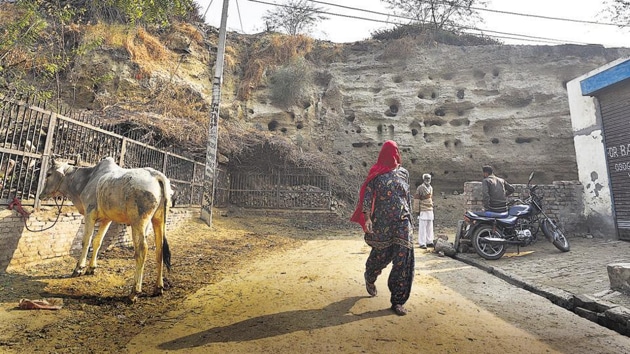Rakhigarhi Excavation: Study says not enough proof of Aryan invasion theory
The study -- ‘An Ancient Harappan Genome Lacks Ancestry from Pastoralists and Iranian Farmers’ -- was published in Cell, a scientific journal, on Friday.
A study of DNA samples of skeletal remains excavated from Rakhigarhi, an Indus Valley Civilisation site in Haryana, did not find enough proof of Aryan invasion and asserts that the Harappan people are the same as those of the Vedic times, according to the people who conducted the research.

The study -- ‘An Ancient Harappan Genome Lacks Ancestry from Pastoralists and Iranian Farmers’ -- was published in Cell, a scientific journal, on Friday.
There was no evidence to suggest large-scale migration to corroborate the Aryan invasion, says the study co-authored by Prof Vasant Shinde, the director of the Rakhigarhi project.
The study also says the people of Harappan civilisation are the ancestors of the most of the population of South Asia. “The Aryan invasion theory is based on very flimsy ground,” it says.
Skeletal remains found in the upper part of the citadel area of Mohenjo-daro belonged to those who died in floods, and not in any massacre by the Aryans as “hypothesised by Sir Mortimer Wheeler”, the study says.
There was archaeological and genetic data to buttress their claims, including the one about Vedic culture being developed by the indigenous people, Shinde said on Friday.
He said the study, which was spanned over seven years, including three years of genetic examination, shows it was the indigenous people of South Asia who developed the Harappan civilisation and were the Vedic people.
The DNA findings, he said, completely rejected the theory of Steppe pastoral or ancient Iranian farmers being the source of ancestry to the Harrapan people.
Niraj Rai, the lead genetic researcher on the Rakhigarhi study, said there was no evidence of central Asian ancestory in the DNA samples.
Balmukund Pandey, organising secretary of the Akhil Bharatiya Itihaas Sankalan Yojana (ABISY), an RSS-affiliated group of historians, said the paper has only affirmed what they have been saying for the past several decades.
Pandey said the theory an Aryan race was floated by the British to “demoralise Indians” and to present them as a “superstitious, barbaric lot”.
Expecting the government to take cognizance of the paper, Pandey said the theory that there was no Aryan migration should be included in the curriculum.
Sajjan Kumar Singh, assistant professor, department of history in Delhi University, who also claims to have worked independently at the Rakhigarhi excavations, however, said there is not enough evidence to suggest that the remains date back to sixth millennium BC.
“So far the evidence we have suggests there was movement of people from the middle-east towards here and the settlements here were no older than fourth millennium BC,” he said.
Get Current Updates on India News, Election 2024, RBI MPC Meet Live Updates, along with Latest News and Top Headlines from India and around the world.



